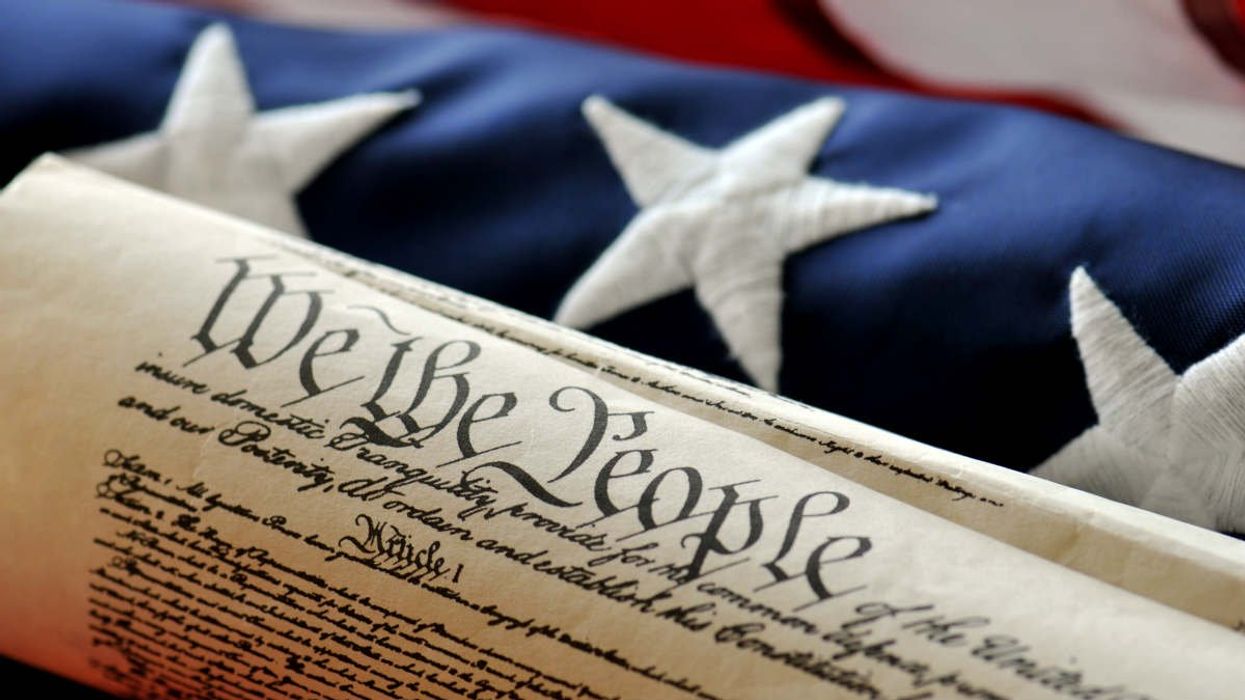
alancrossthwaite/Getty Images

Conservatives often view constitutional rights as sacred and inviolable. Our Constitution is supposed to protect individuals from the arbitrary exercise of government power. But the question of whether constitutional rights are absolute has never been settled.
Can times of emergency, whether real or politically motivated, allow for the suspension of rights? Is the U.S. Constitution little more than a “parchment barrier” against tyranny?
Truth is, governments have always found ways to usurp and undermine constitutional rights, sometimes successfully, sometimes not. Consider the case of New Mexico Governor Michelle Lujan Grisham, who has come under national scrutiny following her decision last week to suspend the right to bear arms within Albuquerque and surrounding Bernalillo County. As part of her strategy to combat gun violence and the illicit drug trade in New Mexico’s largest city, Grisham declared a 30-day prohibition on carrying firearms in public, whether openly or concealed.
Harking back to the COVID-19 pandemic, Grisham issued her decree under the auspices of a “public health emergency order.” The order declares that gun violence and drug use within Albuquerque constitute “conditions of public health importance,” thereby granting the governor the power to usurp the constitutional rights of law-abiding citizens under the state’s “All Hazard Emergency Management Act.”
A federal judge in New Mexico on Wednesday issued a temporary restraining order against the enforcement of Grisham’s decree, but the courts haven’t had the last word.
Like it or not, the Constitution is not, and has never been, capable of protecting individual or collective rights. As TheBlaze’s Auron MacIntyre points out, quoting the political philosopher Carl Schmidt: “The sovereign is he who decides on the exception.”
“If you want to understand who is really in charge of a system,” MacIntyre continues, “look for the person who can decide when the rules of that system are suspended.”
Whatever you think of Grisham’s decision to suspend the constitutional right to bear arms, giving a person absolute power during times of emergency is not a new phenomenon. The precedent reaches back to the Roman Republic.
Among the most renowned examples of such a figure wielding absolute power during a crisis was a former Roman general named Lucius Quinctius Cincinnatus.
As historical records recount, Cincinnatus was tending to his farm when an urgent messenger arrived, bearing news that enemies of Rome were poised to invade the city. He was informed that the Roman Senate had elected him dictator, a position that bestowed upon him absolute power to deal with the situation. This practice was reserved strictly for times of grave emergency. It was customary, however, for this authority to be relinquished once the crisis had abated, typically within a defined time frame.
Initially hesitant, Cincinnatus accepted his role as dictator and made the momentous decision to depart for Rome. There, he reorganized the military forces and led Rome’s legions to a resounding victory against the hostile tribes that had encroached upon the great city’s borders.
Once the crisis had been resolved, Cincinnatus voluntarily stepped down from his position as dictator and returned to the familiarity of his farm. This episode in Roman history bears a striking resemblance to a once-familiar story in American history: that of George Washington.
Much like Cincinnatus, Washington was a farmer who answered the call to arms during a time of national struggle. He assumed leadership of the Continental Army, ultimately securing victory against the formidable British Empire. Subsequently, he presided over the Constitutional Convention of 1787 and later became the nation's first president.
If he wanted, Washington could have remained president indefinitely. Instead, he chose to relinquish his position after two terms in office, returning to his farm, thereby exemplifying the enduring ideals of duty, service, and the primacy of citizenship.
As I have written elsewhere, mere parchment is incapable of being a bulwark against tyranny, as it inevitably becomes vulnerable to evolving legal interpretations, changing social norms, and political maneuvering.
What’s more, the effectiveness of a written constitution relies heavily on the willingness of those in power to uphold its principles. As a society transforms, as ours has, so does the understanding and enforcement of constitutional “rights,” leading to their erosion (and the invention of new ones), no matter what the document says.
Ultimately, a constitution cannot hold a nation together; only shared traditions and customs can hope to accomplish this daunting task.
The rise and fall of the Roman Republic serves as a compelling illustration of this phenomenon, particularly in light of the remarkable achievements of Roman society, which were accomplished with limited reliance on written laws. Instead, the binding force that unified all Romans lay within the unspoken norms governing social and political conduct.
Despite the absence of a formal written constitution, the Romans leaned heavily on unwritten conventions, age-old traditions, and shared expectations, collectively encapsulated by the term mos maiorum, meaning "the way of the elders." As the republic gradually declined, however, it wasn't the Roman legal framework itself that weakened; rather, it was the erosion of reverence for the mutually accepted principles underpinning mos maiorum.
The Second Amendment used to be an integral part of America’s mos maiorum, but its suspension within the borders of Albuquerque, along with the relentless attacks on gun rights nationally, are but the latest examples of the disintegration of America’s shared traditions and mutual expectations, leaving the Bill of Rights a shell of itself.
The lesson we must draw from history is that the strength of constitutional rights ultimately depends on the collective commitment to upholding them, both in principle and in practice. While the Constitution provides a legal framework, it is the people's dedication to the shared values and traditions that truly protect individual and collective rights. When the values that bind a citizenry are severed, constitutional “rights” aren’t worth the paper they're written on.
Adam Johnston writes at Conquest Theory on Substack.Adam Johnston